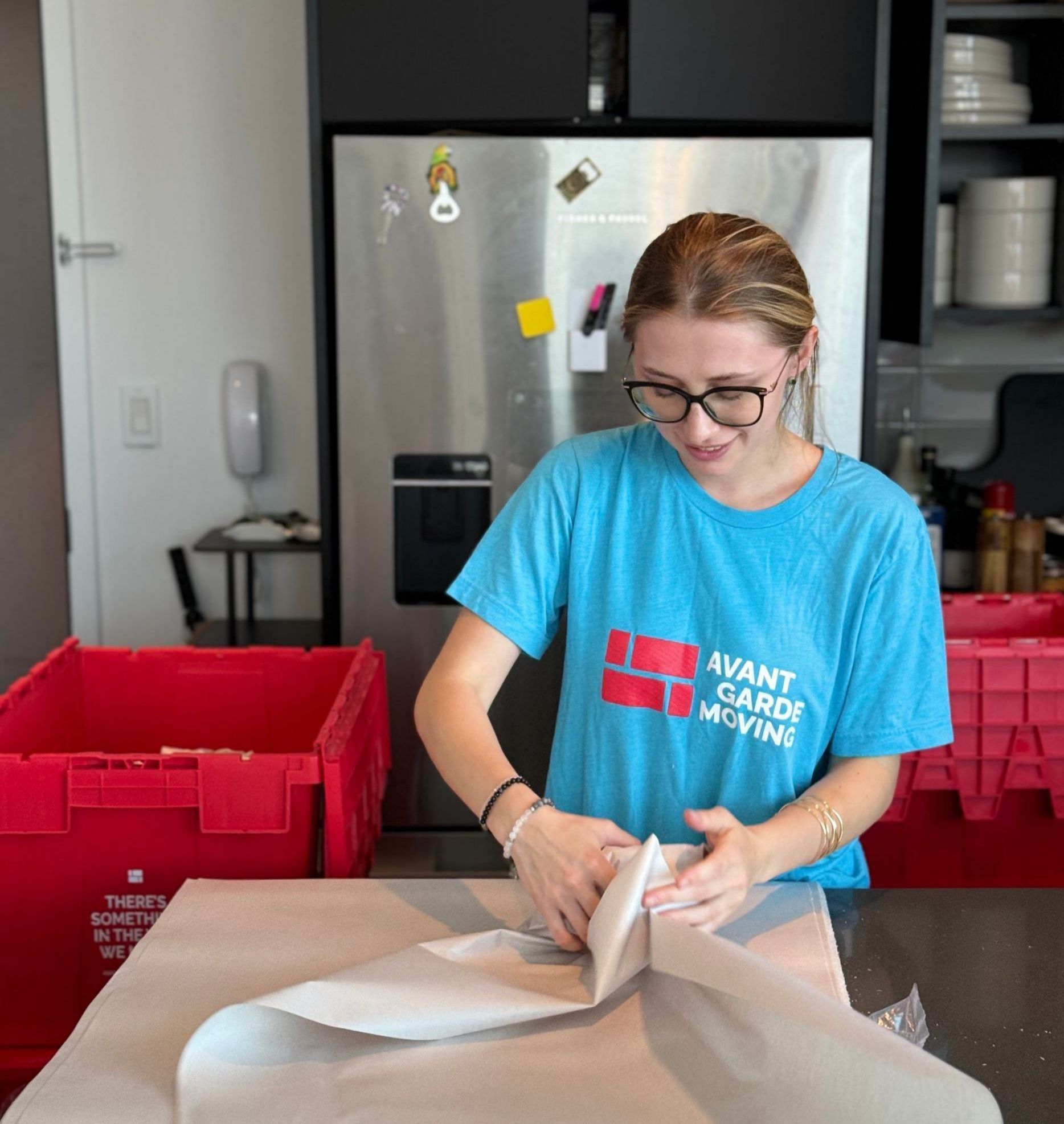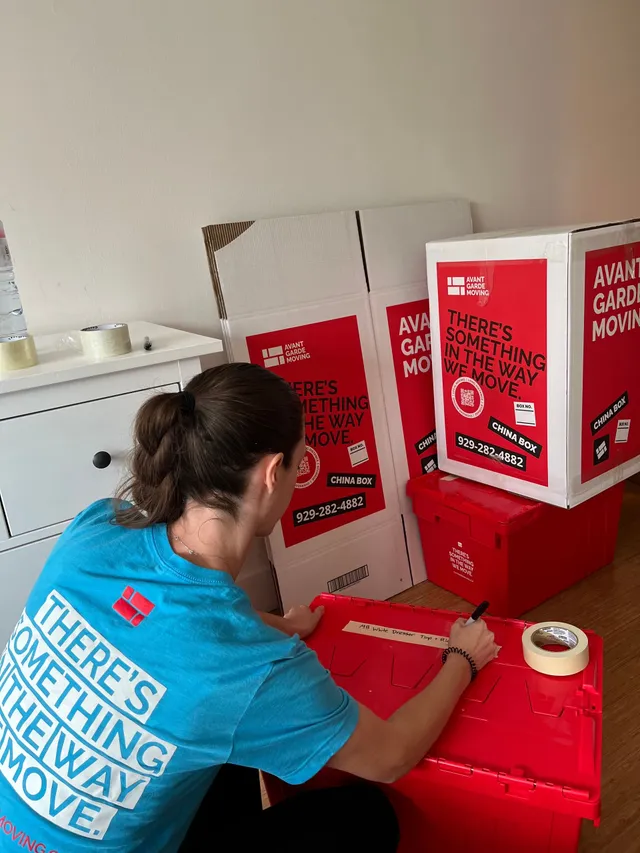Moving in or out of a New York City building? Planning a renovation? Understanding NYC's building rules and Certificate of Insurance (COI) requirements can save you time, money, and major headaches.
NYC building regulations protect residents and property values, while COI requirements ensure you're covered if something goes wrong during your move or renovation project.
Whether you're hiring professional movers, coordinating a renovation with packing and unpacking services, or just need to understand your building's policies, knowing these requirements upfront prevents delays and surprise costs.
Without proper documentation, your moving company or contractors might be turned away at the door - even if you've planned everything perfectly.
What NYC Property Owners Need to Know About Building Rules
As a property owner in NYC, you're responsible for ensuring any work done in your building meets city regulations. This protects your investment, keeps your tenants safe, and prevents costly violations.
The most important thing to understand? Most work beyond basic maintenance requires permits from the Department of Buildings (DOB). This includes major renovations, structural changes, and even some apartment improvements.
When You Need DOB Permits
You'll need permits for:
- Major renovations: Kitchen and bathroom gut renovations, room additions
- Structural changes: Removing or adding walls, changing floor plans
- System upgrades: New plumbing, electrical work, HVAC installations
- Facade work: Window replacements, balcony repairs
Even as a property owner, you can't just hire anyone. Make sure your contractors are properly licensed and have current insurance before they start work. For major moves, consider commercial moving services that understand building requirements.
 Understanding NYC building requirements helps ensure smooth moves and renovations
Understanding NYC building requirements helps ensure smooth moves and renovations
Building Management Requirements
If you own a co-op or condo, your building management has additional rules you must follow:
- Alteration agreements must be signed before work begins
- Certificate of Insurance from all contractors is mandatory
- Specific work hours are usually enforced (typically 9 AM - 5 PM on weekdays)
- Elevator reservations may be required for large projects
Don't assume you can start work just because you own your unit. Building boards can stop projects and impose fines for violations. If you're planning to relocate during renovations, our storage solutions can help protect your belongings.
Certificate of Insurance (COI): What Property Owners and Renters Must Know
A Certificate of Insurance proves that your moving company or contractors have proper insurance coverage. Think of it as protection for everyone involved - you, the building, and other residents.
Why COI Matters for Your Move or Renovation
When you hire local movers, long-distance movers, or contractors, you're bringing outside workers into your building. If someone gets hurt or property gets damaged, proper insurance coverage protects you from financial responsibility.
Most NYC buildings won't allow work to begin without a valid COI. This isn't just bureaucracy - it's smart risk management.
 Proper planning includes ensuring all insurance requirements are met
Proper planning includes ensuring all insurance requirements are met
What Should Be on Your COI
Your moving company or contractor's COI should include:
- General liability insurance: Usually $1-2 million minimum
- Workers' compensation: Required if they have employees
- Your building listed: As both "certificate holder" and "additional insured"
- Current dates: Make sure the policy hasn't expired
How to Get COI From Your Service Providers
Here's what you need to do:
- Ask for COI early: Request it when you get quotes, not the day before
- Provide building requirements: Give your service provider the exact building name and management company details
- Check the details: Make sure everything matches what your building requires
- Submit to building management: Usually 48-72 hours before work begins
For residential moves in Manhattan high-rises, some buildings require higher coverage limits. Ask your building management about specific requirements. Learn more about how far in advance to book movers to ensure availability.
Common COI Problems and How to Avoid Them
Even experienced moving companies sometimes submit incorrect COI documentation. Here are the most common issues and how to prevent them:
Frequent COI Mistakes
- Wrong building name: Make sure the legal entity name matches exactly
- Expired policies: Check dates carefully
- Missing "additional insured": Your building must be protected under their policy
- Handwritten corrections: Most buildings reject these automatically
Red Flags to Watch For
Be cautious if your moving company:
- Can't provide COI documentation
- Says "insurance isn't necessary for small jobs"
- Offers to add your building "later"
- Has coverage limits below your building's requirements
Remember: legitimate professional moving companies routinely provide COI documentation. If they can't, find someone else. For specialized items, consider fine art movers or antique furniture movers who understand insurance requirements.
NYC Building-Specific Requirements You Should Know
Every NYC building has its own rules beyond city regulations. Here's what to expect and how to prepare:
Elevator Reservations and Moving Procedures
Most buildings require advance elevator reservations for moves. This protects other residents and ensures your move goes smoothly.
Typical requirements:
- 48-72 hour notice: Some luxury buildings require more
- Specific time windows: Often 9 AM - 5 PM on weekdays only
- Protective padding: Movers must protect elevator walls and floors
- Deposit fees: Refundable if no damage occurs
Book your elevator as soon as you confirm your moving date. Popular time slots fill up quickly, especially during peak moving season. Consider our guide on professional packers vs packing yourself to determine your timeline needs.
 Proper preparation includes understanding your building's specific requirements
Proper preparation includes understanding your building's specific requirements
Co-op and Condo Board Requirements
If you live in a co-op or condo, expect additional requirements:
- Board approval: Some moves require advance approval
- Reference letters: For new residents moving in
- Financial documentation: Especially for co-ops
- Move-in/move-out fees: Often $200-500 per move
What About Storage During Moves?
If you need temporary storage during your move, make sure your storage provider also meets building insurance requirements. Some buildings have restrictions on how long moving trucks can remain outside. For eco-friendly options, check out our plastic bin rental service.
For complex moves involving fine art, antique furniture, piano moving, or pool table transport, additional insurance coverage may be required. We also offer specialized fine art storage for valuable items.
Planning Your NYC Move: Practical Steps
Understanding the rules is one thing - following them successfully is another. Here's your step-by-step guide:
4-6 Weeks Before Your Move
- Contact building management: Get their specific COI and moving requirements
- Research moving companies: Choose licensed, insured movers familiar with NYC buildings. Consider event and project movers for time-sensitive relocations
- Request quotes and COI samples: Make sure they can meet your building's requirements
2-3 Weeks Before
- Reserve elevators: Book your preferred time slots
- Confirm COI details: Make sure your building name and management company are correct
- Submit paperwork: Get all required forms to building management
1 Week Before
- Final COI submission: Ensure building management has current documentation
- Confirm logistics: Double-check elevator reservations and any special requirements
- Prepare for moving day: Have building contact information handy
What This Means for Your Next Move
Whether you're planning a local move within NYC, a long-distance relocation, or even overseas moving, understanding these requirements protects you from delays and unexpected costs.
The key is starting early and working with experienced professionals who understand NYC building regulations. Don't wait until the last minute to handle COI requirements - it's one of the most common reasons moves get postponed.
For complex relocations involving piano moving, pool table transport, or packing services, professional movers handle all documentation and building coordination. If you're moving to specific areas, check our guides for moving from NYC to Florida or moving from NYC to Austin.
Get Expert Help With Your NYC Move
Understanding NYC building rules and COI requirements doesn't have to be overwhelming. The right moving company handles all the paperwork and building coordination for you.
Contact our experienced team for expert assistance with your NYC move. We're familiar with building requirements throughout Manhattan, Brooklyn, and the other boroughs, ensuring your move meets all regulations from start to finish.
For additional moving resources, explore our guides on moving with pets, moving before or after house closing, and overseas moving tips.


